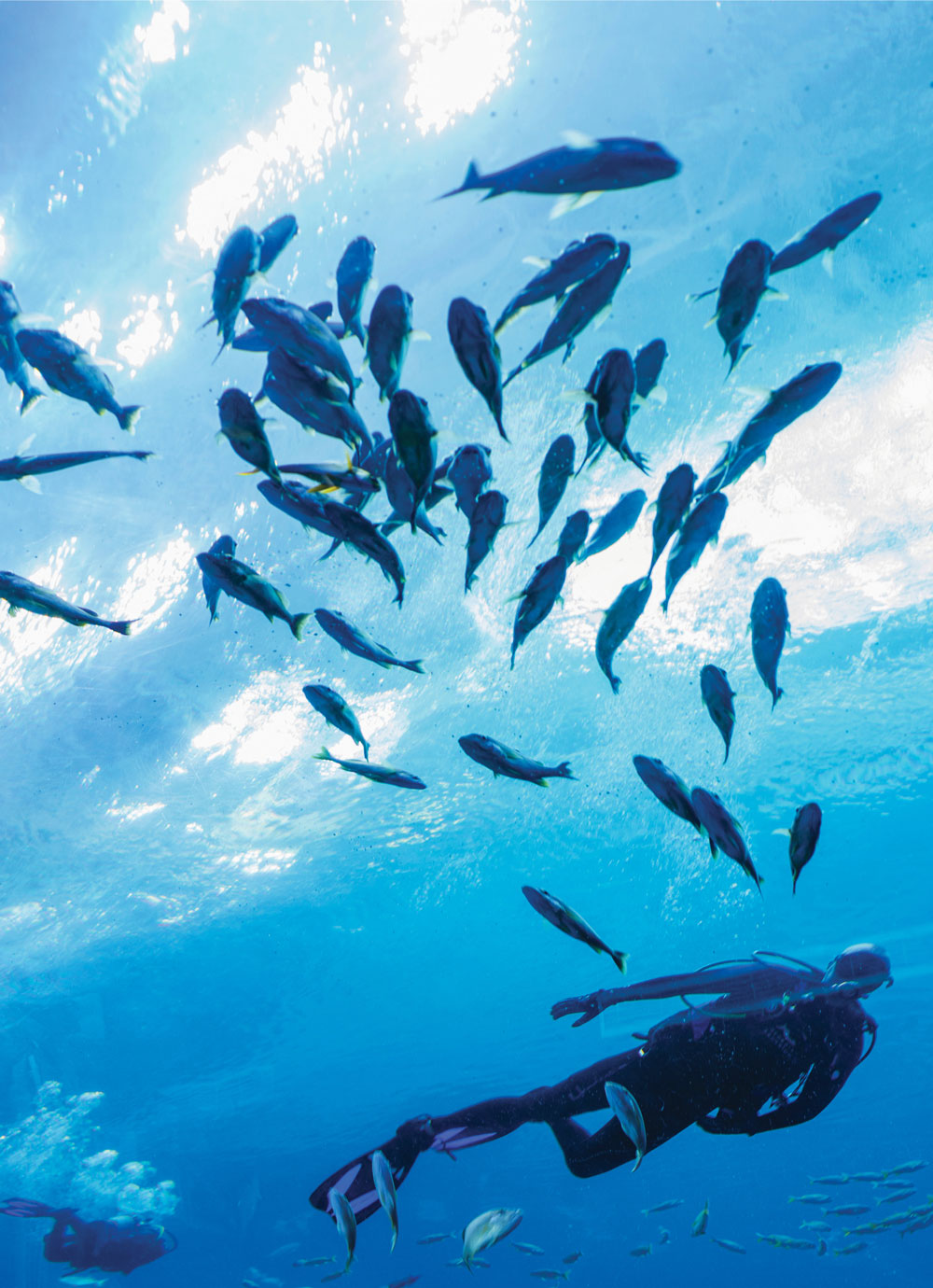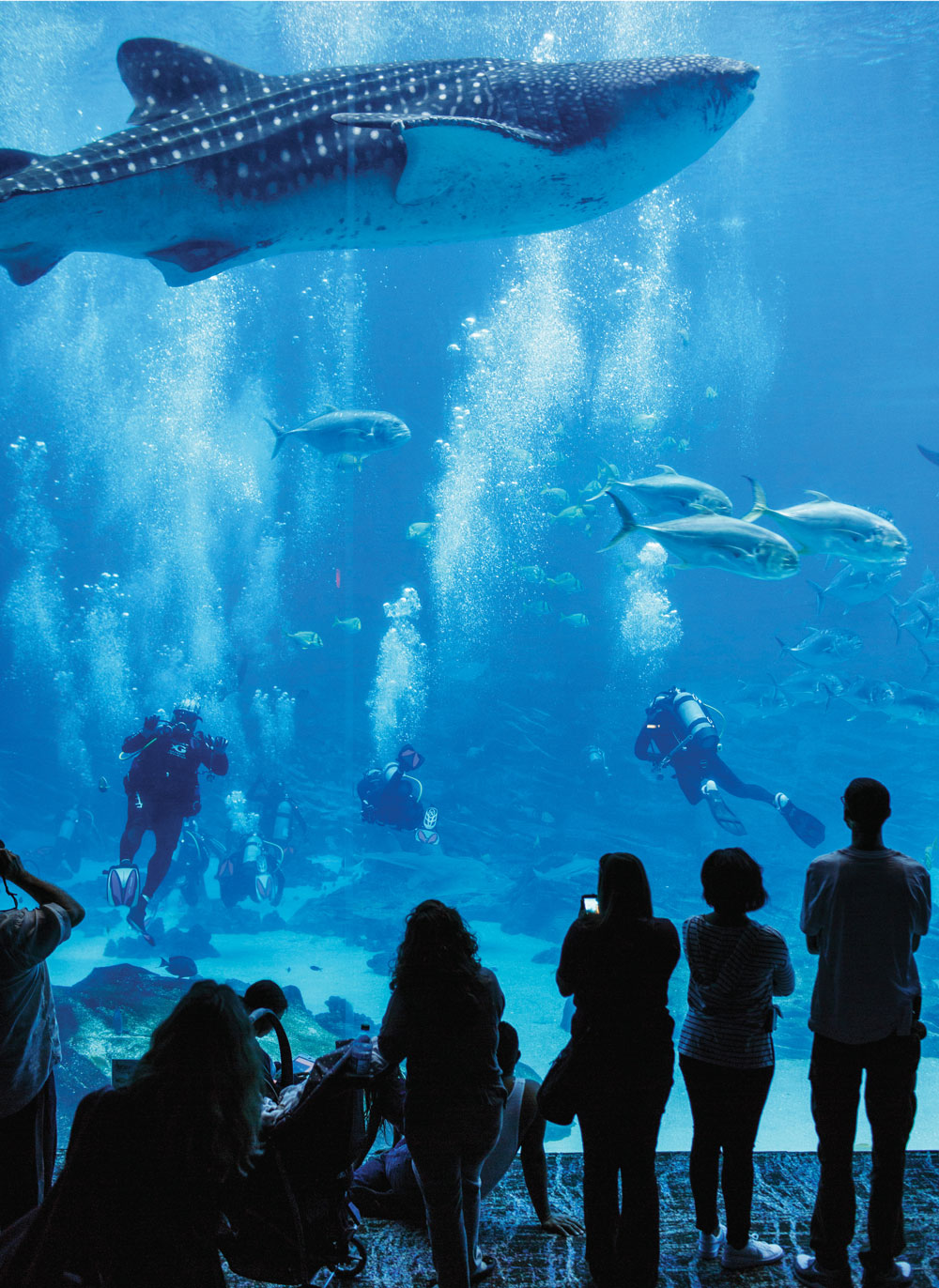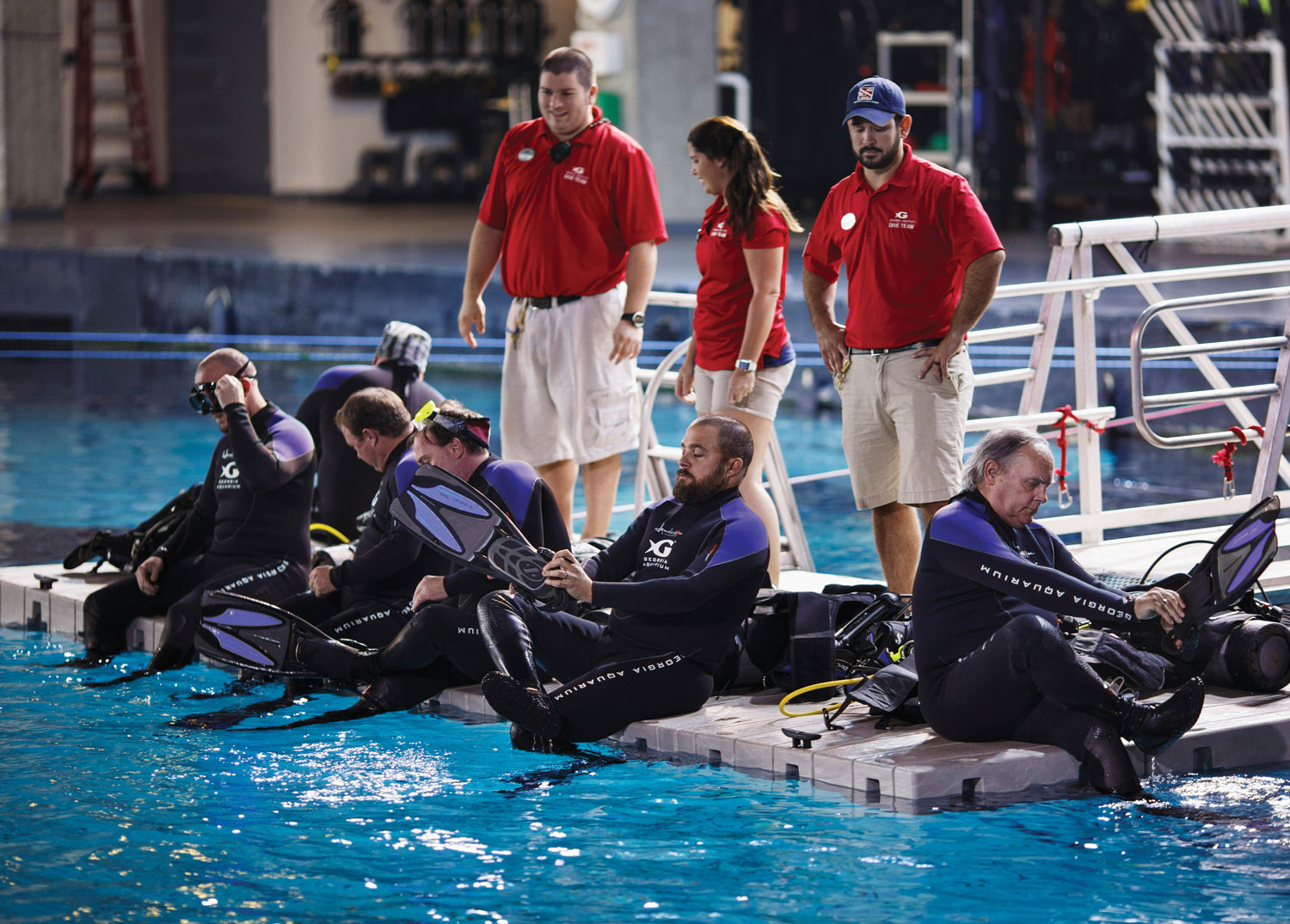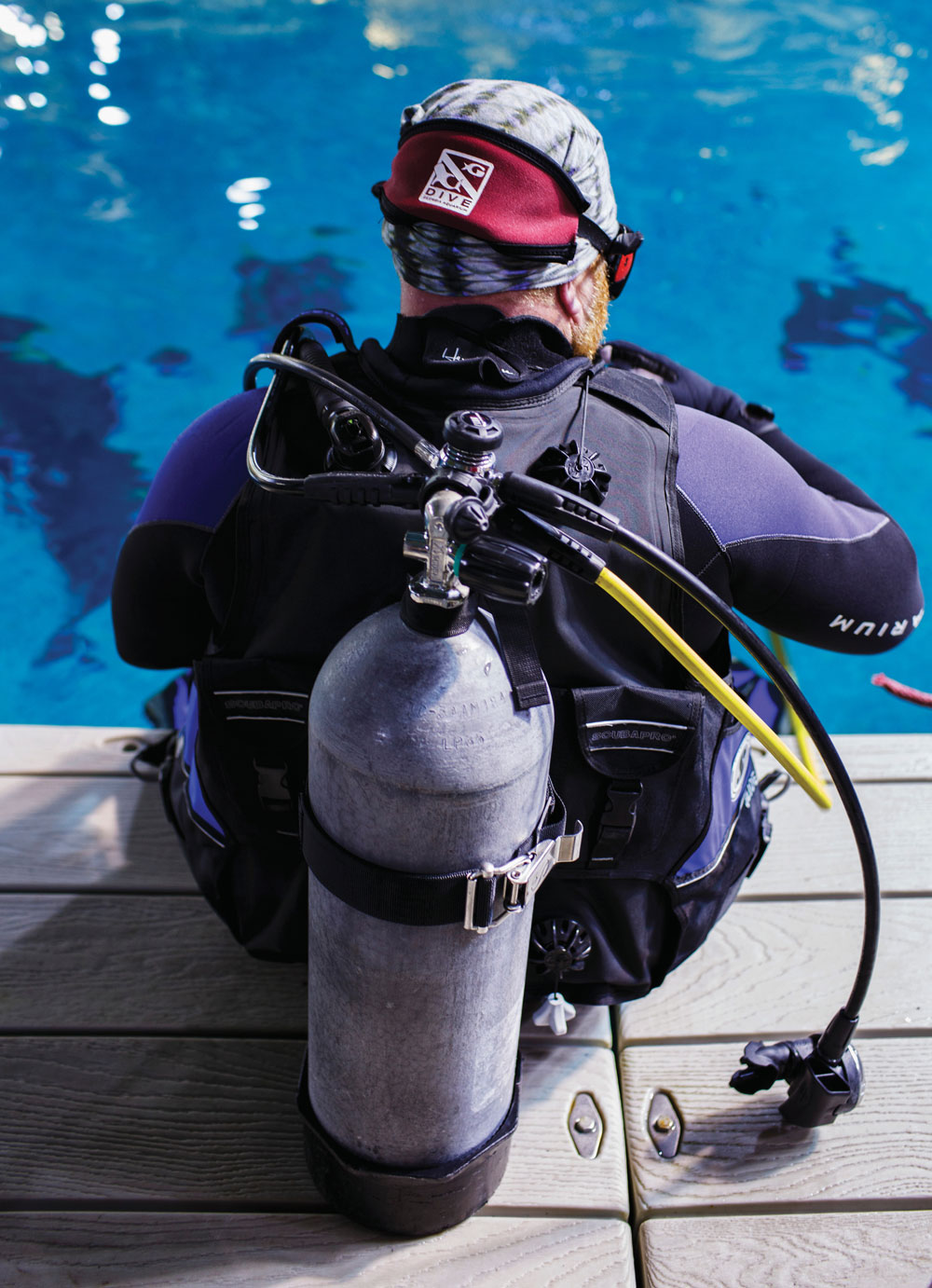
Photograph by Melissa Golden
When Brian Hood slipped into the cool saltwater, down to where the manta rays drift by in a slow-motion ballet, the gunfire and explosions from that spring day in Baghdad nine years ago, which have reverberated in his mind ever since, didn’t matter so much. The retired Army staff sergeant from Fort Mitchell, Alabama, walks with a cane; suffers from tinnitus in his left ear; and relies on 19 medications to help him cope with PTSD, a traumatic brain injury, and damage to joints in his neck and back. But in the water Hood was weightless, capable, relieved, and possessed of an implausible calmness, given the enormity of many of the thousands of animals around him. In the glass tunnel that bisects the Georgia Aquarium’s blockbuster exhibit, Ocean Voyager, the scuba diver spotted his wife—on land she’s his driver and crutch—and posed for a photo he’ll never forget. It was the highpoint, thus far, of Hood’s three-year involvement with the Wounded Warrior Project, which he credits with getting him off his couch, sobered up, scuba certified, and believing in alternative therapies that include horseback riding and now swimming with whale sharks.
“Once you hit the water, it’s so relaxing; all anxiety is gone,” said Ric O’Brien, a Wounded Warrior Project leader and Vietnam veteran who’s helped coordinate dives and snorkeling excursions for 150 service members in the 6.3-million-gallon habitat. “You’re away from your PTSD. You’re away from any injuries you have. It’s just you and the aquarium.”
As part of a larger mission to honor the U.S. military, the Georgia Aquarium launched its Veterans Immersion Program (VIP) in 2008 with a team of Handicapped Scuba Certified Dive Masters and Instructors (the world’s largest) that can handle vets of all abilities, including those with quadriplegia and amputations. More than 600 service members are expected to swim with the four whale sharks and their aquatic companions from three different oceans this year—plus nearly 5,000 civilians as part of the Journey with Gentle Giants program ($236 for a standard ticket). Officials say the tank’s therapeutic benefits have extended far beyond the military community; Shepherd Center patients, terminally ill folks fulfilling last wishes, autistic teens, the blind, and stressed-out business people have all turned to the tank for rehabilitative help.

Photograph by Melissa Golden
“It’s a place of healing—from the breakup of a boyfriend or the wounds of war,” said Susan Oglesby, an aquatic therapist who designed and staffed the programs for public access.
But none of this was planned upon the aquarium’s opening in 2005.
Inspired by similar immersion programs at aquariums in Tampa and Walt Disney World, Georgia Aquarium brass were forced to get creative and retrofit some facilities to accommodate guests with limited mobility. Standard gym benches in locker rooms were tweaked to hold therapy pads that act as makeshift changing tables. A custom dock and ramp were built. Still, few suspected the programs would swell to accommodate thousands of destination visitors from around the world every year.
“Some people gave it six months [to last], and by then we were booked out solid,” says Oglesby. “People want this. People need this. This is the Atlanta Ocean.”
Recent converts include Phyllis Pellin, 71, a twice-widowed, retired kindergarten teacher from central Florida. An avid snorkeler, Pellin lives in a retirement community nicknamed “God’s Waiting Room” and has tackled one bucket list adventure after the other all her life. “I think it’s extremely relaxing, meditative, like wet yoga,” said Pellin, minutes after emerging from her maiden dip in the whale shark tank. “It’s like a religious moment.”

Photograph by Melissa Golden

Photograph by Melissa Golden
Senior dive master Mike Hilliard, an Army veteran who survived a gunshot to the head in Iraq, said some pupils have credited the programs with giving them a new will to live, and almost all surface with jovial demeanors.
“Not only are [veterans] carrying the burden of whatever may have happened overseas, but when they come back, their family’s been in a routine for the year that they’ve been gone, and now they’re trying to fit into that,” said Hilliard. “It’s a lot of things hitting them at once, and it becomes overwhelming. Being able to go into an environment that they’ve never been in, never experienced, with all the animals—there’s nothing in there that’s treated them wrong. It’s a new, fresh start.”

Photograph by Melissa Golden
Indeed, the six stone-faced men who accompanied Hood into the tank returned to a debriefing room afterwards looking noticeably more relaxed, joking and reminiscing while a video of their dive played on a wall-mounted television. Wives and children filed into the room and watched the divers float among the bubbles and groupers. At one point, the divers approached the massive acrylic pane that divides the tank from the Ocean Voyager theater, and a couple of them reached out to loved ones, as if touching hands.
“It’s above what I thought it was going to be,” said Hood in the back row, sounding dazzled. “I mean, it is amazing down there.”
This article originally appeared in our January 2017 issue.













